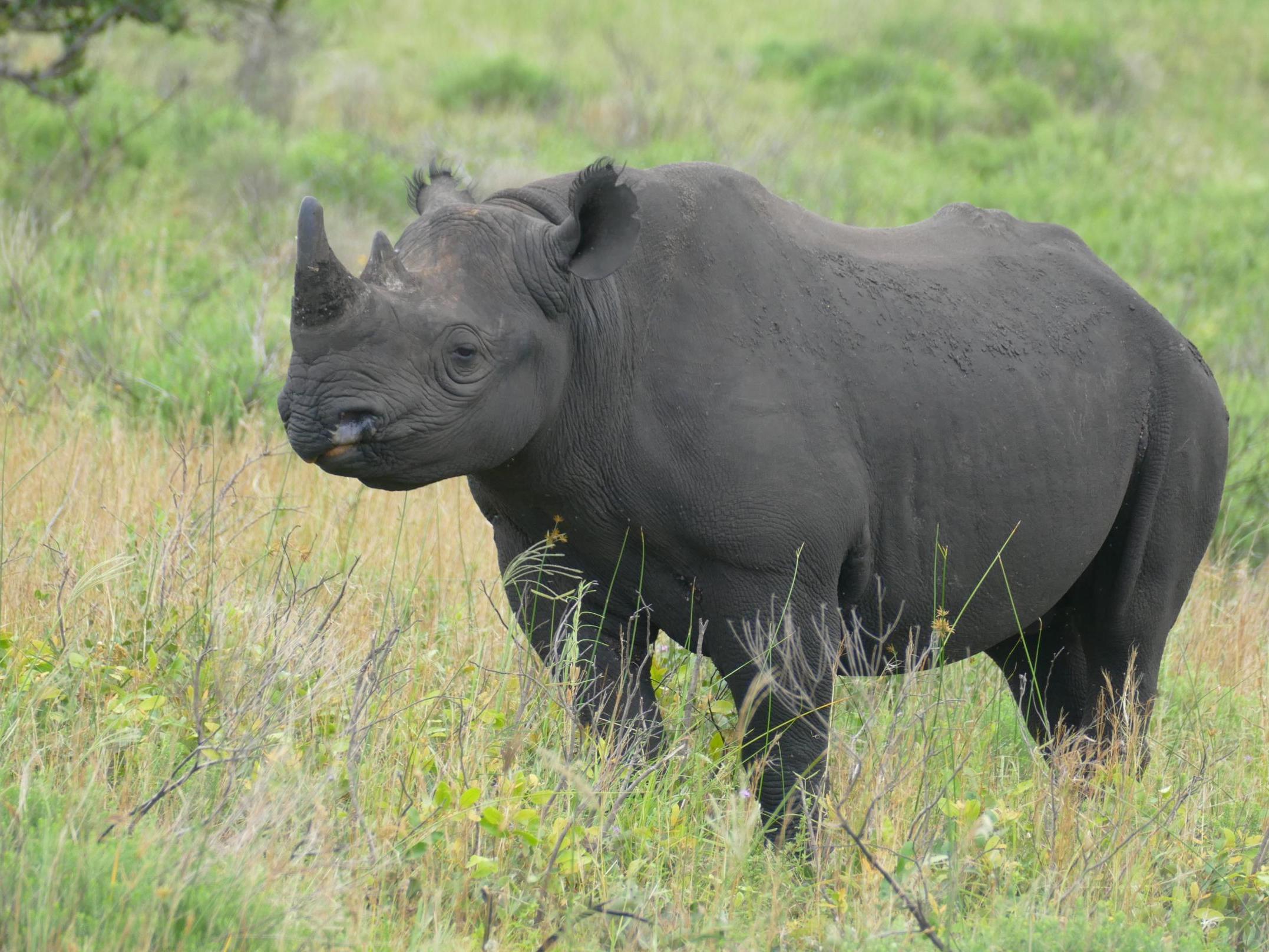Rare black rhino dies on flight from UK to Africa, where he was due to be released into wild
Black rhinos are critically endangered because of poaching and loss of habitat

A rare black rhino has died while on a 5,000-mile flight from Kent to Africa, where he was due to be released in the wild.
Zambezi, a 17-year-old male, was born and raised in animal reserves controlled by the Aspinall Foundation but was on his way to Tanzania as part of ongoing conservation efforts to boost the critically endangered population when he died.
Zambezi was under the care of the Aspinall Foundation, which owns nature reserves in the UK. He was also accompanied by a team from the Grumeti Fund Reserve where he was set to be released, African keepers and a veterinarian experienced in the movement of large animals.
“We do not yet know what caused his death,” said Damian Aspinall, the chairman of the foundation, who said he was “shocked and devastated by the loss”.
He announced an inquiry into Zambezi’s death “to see if there are lessons to be learned”.
Conservation success for the Gorongosa National Park in Mozambique
Show all 8The foundation defended its decision to transfer the animal from its Port Lympne Reserve in Kent, saying the practice of relocating black rhinos born in captivity to Africa is safe and increasingly common.
“The Aspinall Foundation has previously successfully returned eight black rhinos to their native homelands,” Mr Aspinall said. “In other worldwide organisations, 19 black rhinos have been successfully relocated.”
Black rhinos are listed as “critically endangered” by the World Wide Fund for Nature (WWF).
Their population declined dramatically in the 20th century at the hands of European hunters and settlers.
According to the WWF, black rhinos came close to extinction after their numbers dropped by 98 per cent between 1960 and 1995.
Their numbers have rebounded to between 5,000 and 5,500 but they are still threatened by loss of habitat and poaching – rhino horns are sold at exorbitant prices in China and Vietnam, where they are used for traditional remedies.
Black rhinos are smaller than their white counterparts and can be distinguished by their pointed – rather than square – lip.
The Aspinall Foundation had announced its decision to move Zambezi on 26 June and chronicled his journey on Facebook.
After the animal’s death, Mr Aspinall said that the foundation will continue to seek to return endangered species to protected areas in the wild.
“Overall, we have been hugely successful,” he said. “It is my firm belief that these animals do not belong in captivity, our long-term goal is to see all zoos phased out or, if they’re not, to see them truly doing conservation work.”
Subscribe to Independent Premium to bookmark this article
Want to bookmark your favourite articles and stories to read or reference later? Start your Independent Premium subscription today.

Join our commenting forum
Join thought-provoking conversations, follow other Independent readers and see their replies